The First Day of Autism
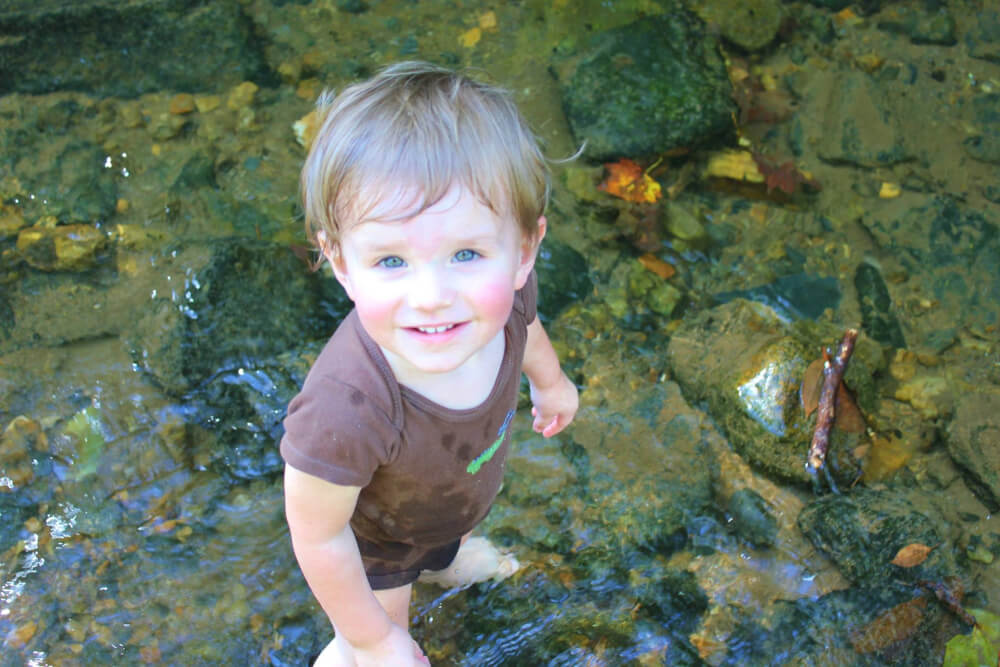
The first day I realized my baby boy was autistic is one of those days that will forever be etched in my memory.
Like the day my husband and I found out in the ultrasound room that our baby was a boy, or the night we walked together on our favorite trail while I was in labor with him. My husband sang to my stomach to let Johnny know he was loved, and that we were waiting for him on the other side of the dark.
I remember it like the first time I held him, when I knew nothing in the world could make me feel any happier than I felt right then.
No one expects to add the “first day of autism” to their baby books. Even though people seem determined to get you to look on the bright side during those first few weeks and months, I highly doubt they would be able to do that if it were their child.
For all the “look on the sunny side” advice, I don’t know of anyone who would volunteer their child for the harder life of autism. I’m sure that isn’t P.C to say, but it’s true.
For weeks, I had been trying to overlook the symptoms that I’d hoped would amount to nothing more than a quirky phase. They didn’t pass though. They worsened.
Johnny wasn’t adding any new words. He was losing words he used to use.
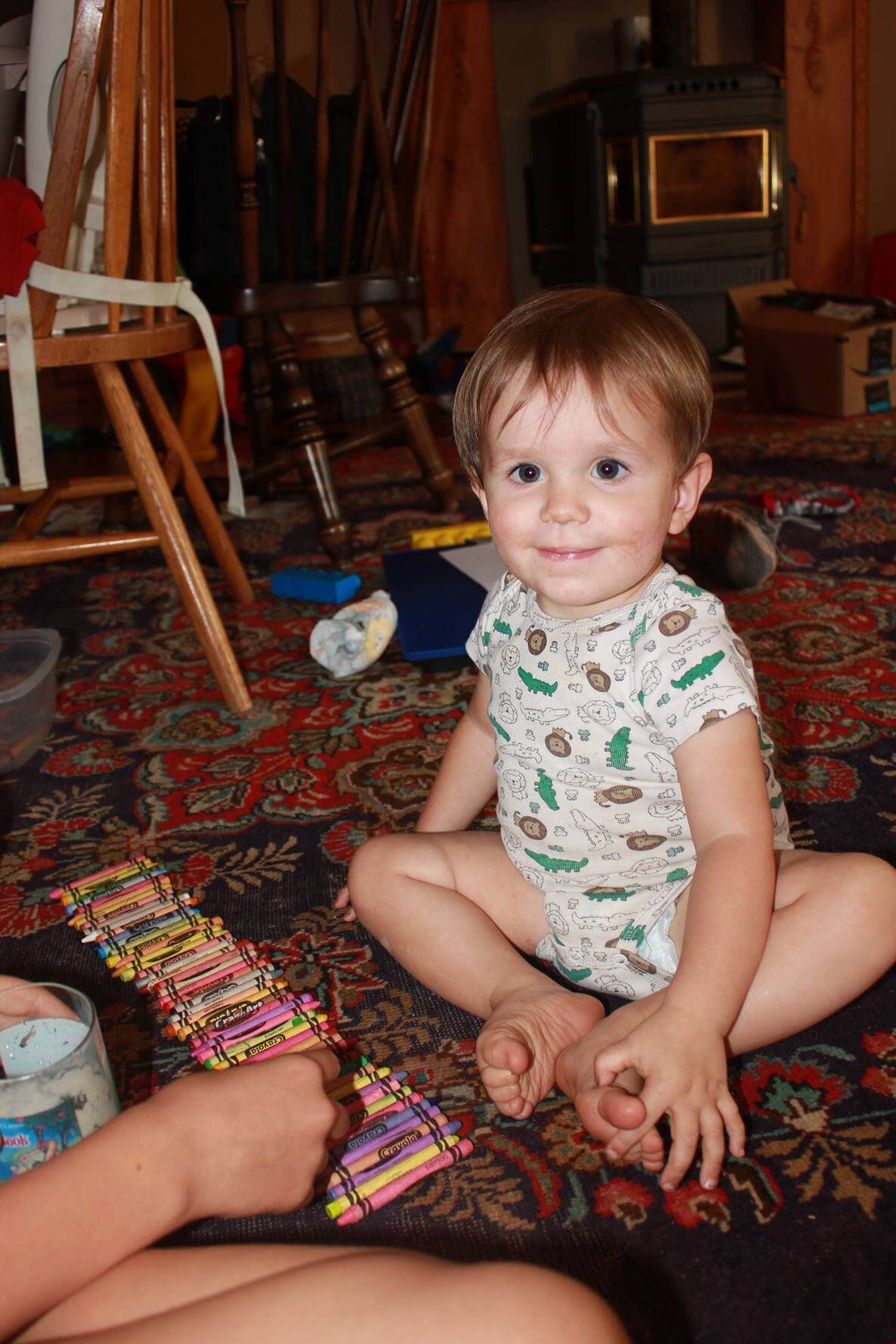
He didn’t respond to his name. Ever. In fact, he didn’t respond to us at all unless we clapped loudly and counted down. Then he would briefly turn to see what was going on, before returning to his own little world.
He spent every waking hour jumping or spinning in front of reflective surfaces…like, our oven door or the shiny metal of a mixing bowl. He repeatedly ran alongside the wall, so he could watch the movement of his shadow there.
That day, we had taken our kids to the pool. While all the other babies played and splashed with their parents, Johnny stayed on the hot concrete with his shadow. Whenever we tried to drag him away, he cried and desperately scrambled to get back to it.
People around us stared as we made attempt after attempt to engage with Johnny. Eventually, we packed up and left.
As soon as we got home, I took my laptop to our room, closed the door, and determined to find an answer. For some reason, autism wasn’t even on my radar.
Looking back, I can’t remember what else I could have possibly thought it was. I only remember how jarring it felt when every internet search I made ended on autism websites. I felt my stomach drop.
I knew autism as something that required aids, and therapies, and never went away. Autistic was the word kids in my school used to bully each other. It was something that changed your life, and kept changing it, whether you wanted it to or not.
I messaged my good friend who is a speech language pathologist, hoping she would tell me I was being ridiculous. I said the words “autism” and “Johnny” together in the same sentence for the first time, to her.
I remember her NOT saying, “that’s silly” or “I’m sure he is fine” but, instead, “Ok. Tell me what you see.” After I recited the list of suspect behaviors, a list so long it scared me as I wrote it.
She said, “Whatever happens, he will be OK. You will be OK. Autism is NOT a death sentence.”
I promise you, that day, that month, that year, it felt like it was.
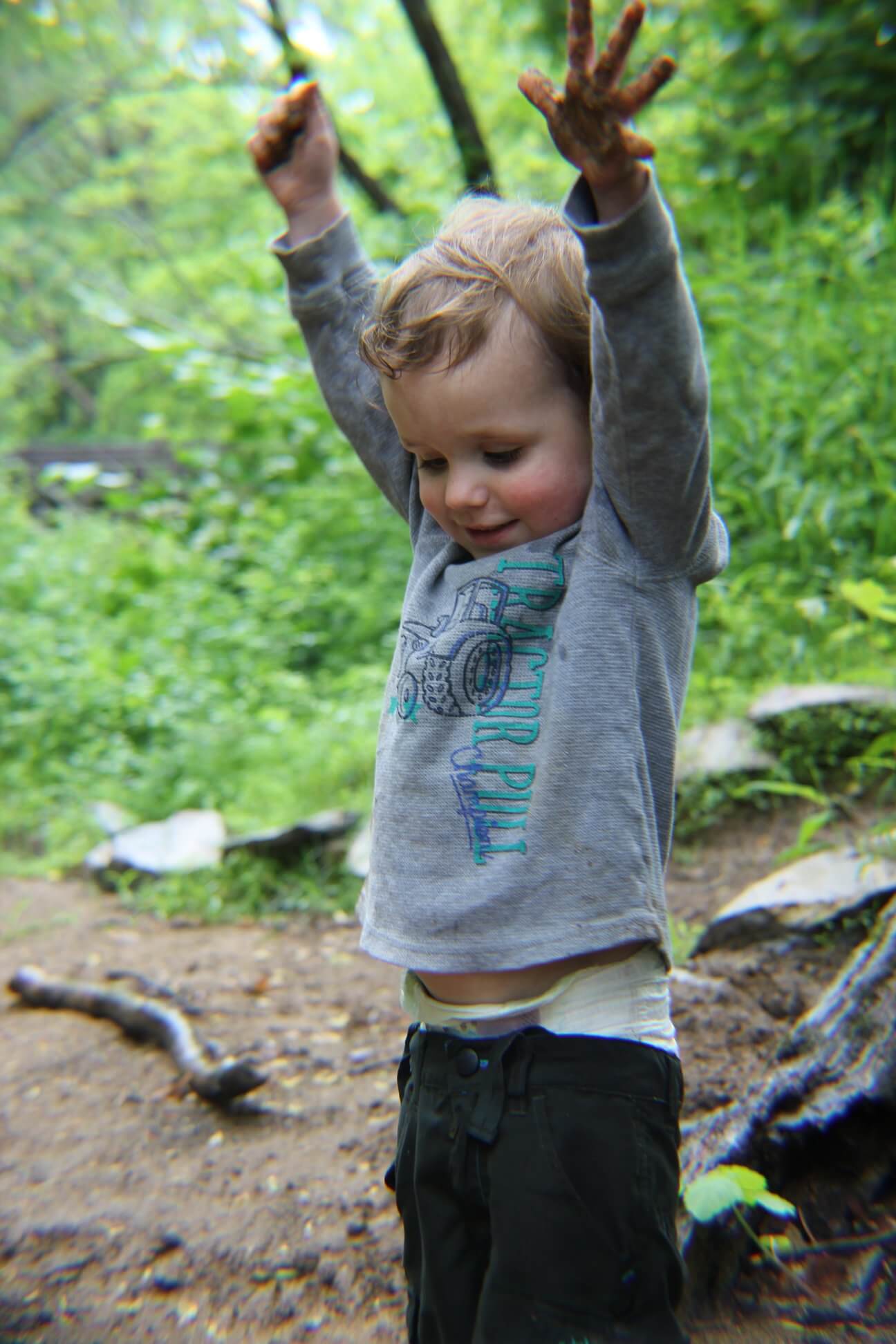
Numbly, I made an appointment with our pediatrician. I picked out clothes, buckled Johnny in the car, and prayed that this would be the day I felt embarrassed for being a certifiable worry-wart of a mother.
I prayed the doctor would laugh gently and tell us that there was no way this healthy little boy was autistic.
Instead, while writing down the list of behaviors in his notes, he said “hmmm” a lot and a look of concern grew on his face.
During the appointment, Johnny grew more and more agitated. He was crying and wrestling to get down, not responding to any of the comfort we were trying to give him. We made excuses for him, as usual. Interrupted nap, “off” lately, doesn’t like to be closed in…
Then, the doctor told my husband and I to stay where we were as he reached for our crying, wrestling, Johnny. He carried Johnny to the center of the room and put him on the floor. He said he wanted to know if Johnny would come to us for comfort. We nodded.
Johnny sat on the floor and cried at the ceiling. The doctor told us both to call to him.
So, we called for our sweet Johnny. “Come here, Johnny-boy. Come to Mommy. Come to Daddy. Please, please, come to us, sweet boy.” But, he didn’t. He stayed right where he was, crying at the ceiling, completely, utterly, alone.
The doctor said, “It’s not normal that he doesn’t want to come to you. Normally, children will run to their parents for comfort. If they are bonded to their parents, you can barely pull children away.”
His words stung my mom-heart in a way I had never experienced before. On our hard days, I still feel that sting.
On our ride home, Johnny stared ahead, still alone. I called to him, and he didn’t look. Eventually I stopped trying to get his attention and we rode home in silence.
In the days that followed, I didn’t see the hope everyone was telling me I should comfort myself with. Instead, I saw a little boy who no longer waited at the door for me to come home, who no longer seemed to even notice that I WAS home.
He struggled to get away from my hugs when he cried and would run through the house crying at the ceiling. He woke all through the night and was comforted only by listening to Gregorian chant in the dark.
John and I almost never slept.
After he turned two, Johnny didn’t say Momma anymore or reach for me. He self-soothed by pinching any skin he could reach with his sharp nails that were too sensitive to cut.
He wouldn’t eat. All foods made him cry. I never realized how much I expressed love through feeding my children until I had one I couldn’t feed.
A few months later, we walked into Kennedy Krieger and walked out with a diagnosis of level 3 autism. It was a “no-brainer” diagnosis that took the physicians only a few minutes to arrive at.
By the time the doctors told us, ever so gently, that Johnny was autistic, we were mostly numb to the word. We had already done the hard work of wedging open the door of our futures to it.
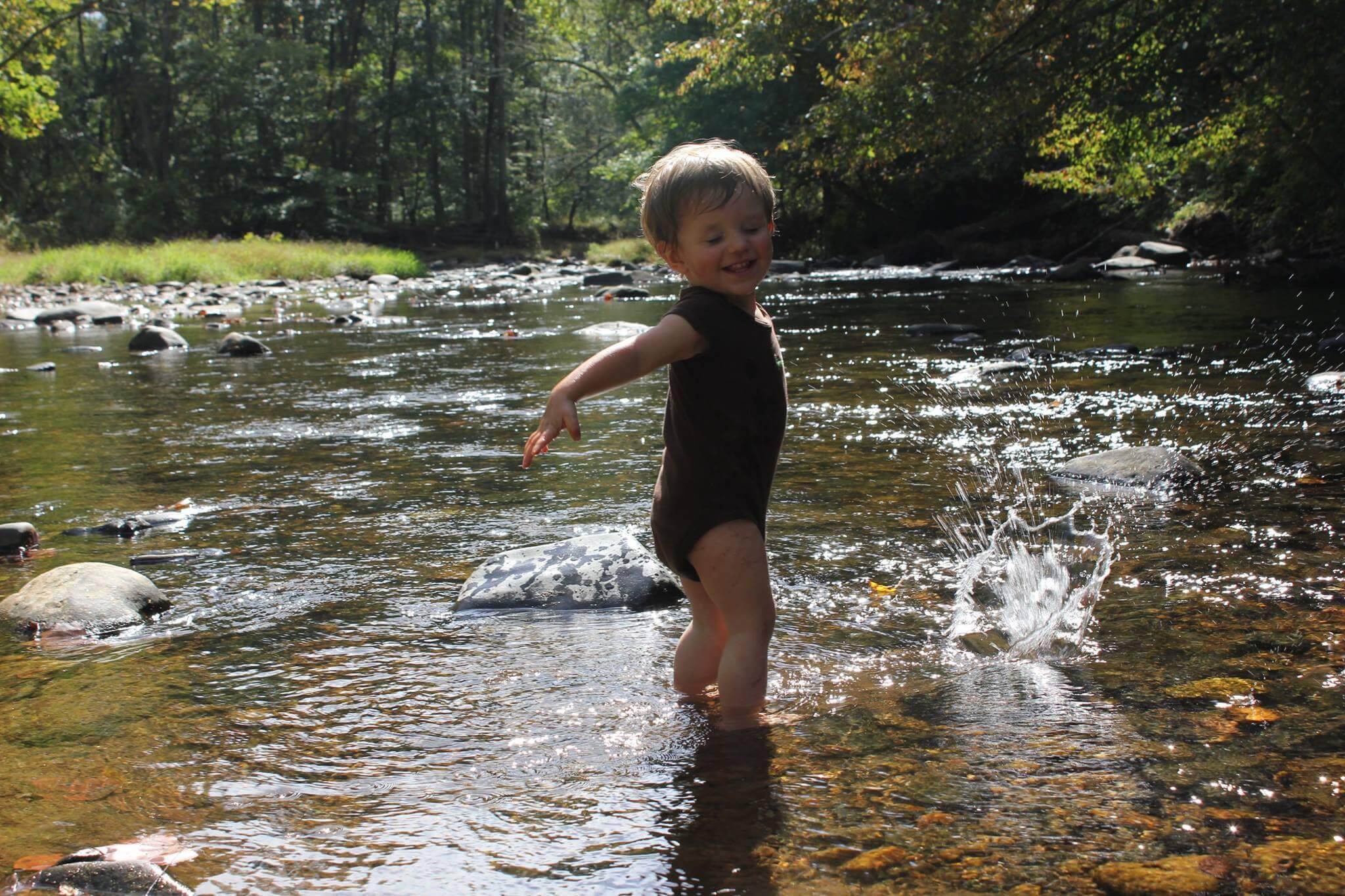
I’m no stranger to grief. I’ve lost my father and my brother. Those losses hurt more than I can express…but I’ve never known a grief as markedly lonely as the first days of autism.
When someone learns that their child has an incurable illness, people don’t say, “At least your other children don’t have it. You should think about that!”
When someone learns that their child has cancer, people don’t tell them, “At least your child is alive.” They say, “I’m so very sorry. That isn’t fair.”
But, when you tell someone you found out that your child is autistic, and that it is probably severe, they say do things like, “You should feel lucky he is alive” and “You should feel lucky he is healthy” and “You should feel lucky?”
They also say, “He’s so young! I wouldn’t worry about the future too much.” Which, honestly, just means you aren’t allowed to worry…like, you don’t have the right to yet or something, and that makes you feel worse.
During that first year, while other families were talking pictures of outings with their toddlers, I was researching self-injurious behaviors and seizures. I was bracing for an uncertain future the only way I knew how.
Whenever I left the house with Johnny we garnered critical stares from people who saw Johnny as “undisciplined” and “unfortunate.” There seemed to be children his age happy and laughing everywhere I looked.
It is a grief you have to hole-up with alone. One that you have to bar the doors to the outside world against, so that you can grieve the connection you thought you would share with your child.
It is a grief that makes everyone else too uncomfortable.
That is the grief of the first year with autism, the loss of connection. The shared enjoyments like stories before bed, playing on play grounds, playing with toys, pretending. The shared enjoyment of a childhood.
Over a year later, I feel like I can finally say my friend was right that first day. Autism is not a death sentence. There are still very hard days though. Days when we all (even Johnny) think that we won’t be able to do it.
But there are finally very good days too. Days when Johnny will reach to be held and when he will sigh contented sighs while I snuggle him. There are days he does the funniest things, even though he doesn’t mean to. Like last night when he lip-synced to the Gregorian Chant within two inches from my face or last week when he suddenly yelled, “Recycle, recycle, recycle!”
There are days when we are all happy.
There is nothing like the pleasure of being able to make a vulnerable little boy feel happy and protected. To reach out to him often enough, and without success for enough times, that he begins to reach back.
Life with autism is not a less-than life. It is a life filled with the same pleasures we all have, but with a different lens. A lens that is just as valuable.
That doesn’t mean that I don’t still feel sad when I see children Johnny’s age talking and playing with their parents. I think that will always be hard. And, it certainly doesn’t mean I would have ever chosen the hard road of autism for our Johnny.
But, it does mean that, more often than not, we’re able to enjoy each other, and truly live, right where we are. Without expectation. Johnny taught us that.
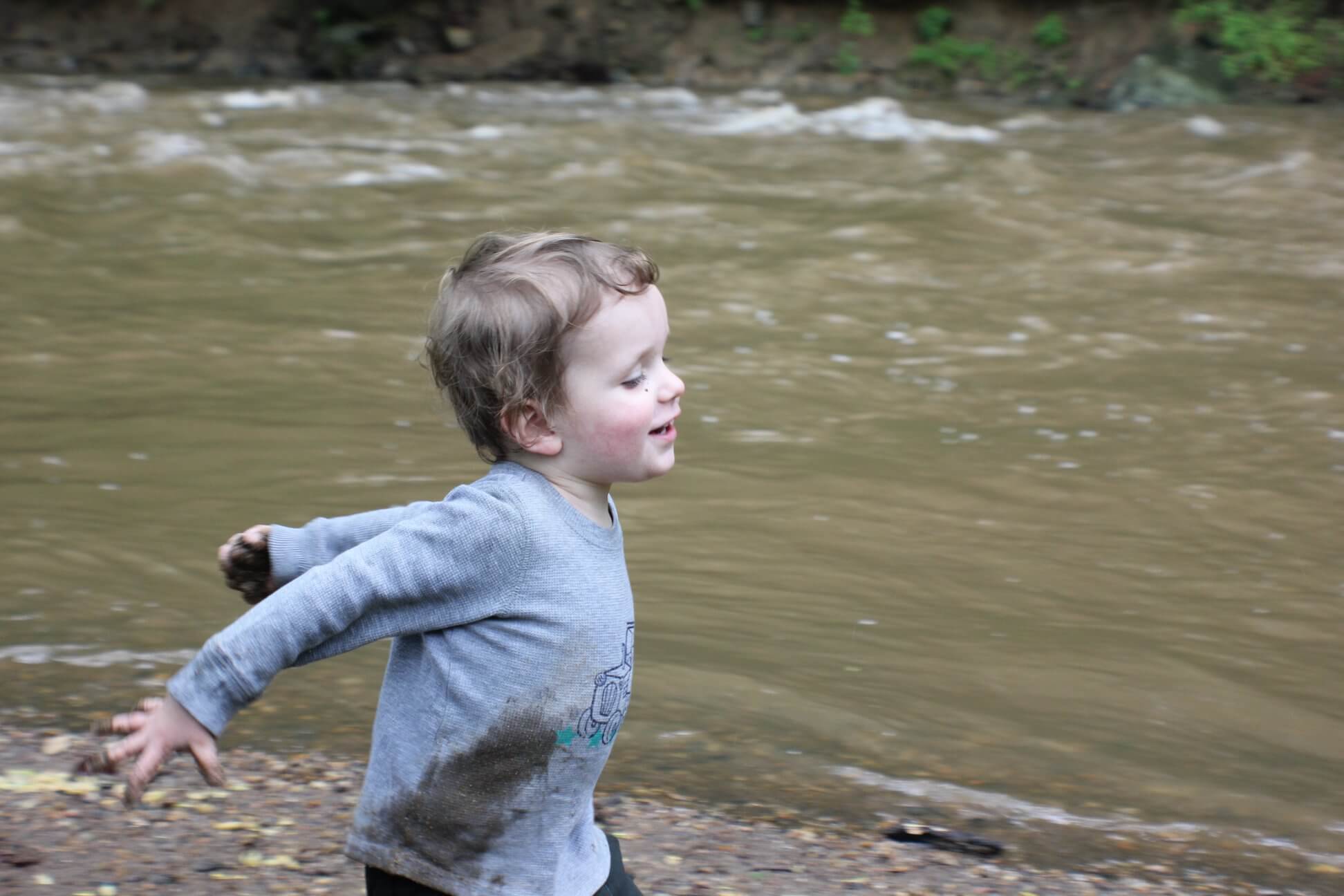
Written by, Sarah Wenger
I am a teacher at a title I school in Baltimore. I have five children. My almost three year old, Johnny, was diagnosed with autism at 18 months through Kennedy Krieger. I’m a busy mom, teacher, graduate student, runner, and writer. You can follow our journey on our blog, Love Beyond Words.
Interested in writing for Finding Cooper’s Voice? LEARN MORE
Finding Cooper’s Voice is a safe, humorous, caring and honest place where you can celebrate the unique challenges of parenting a special needs child. Because you’re never alone in the struggles you face. And once you find your people, your allies, your village….all the challenges and struggles will seem just a little bit easier. Welcome to our journey. You can also follow us on Facebook and subscribe to our newsletter.

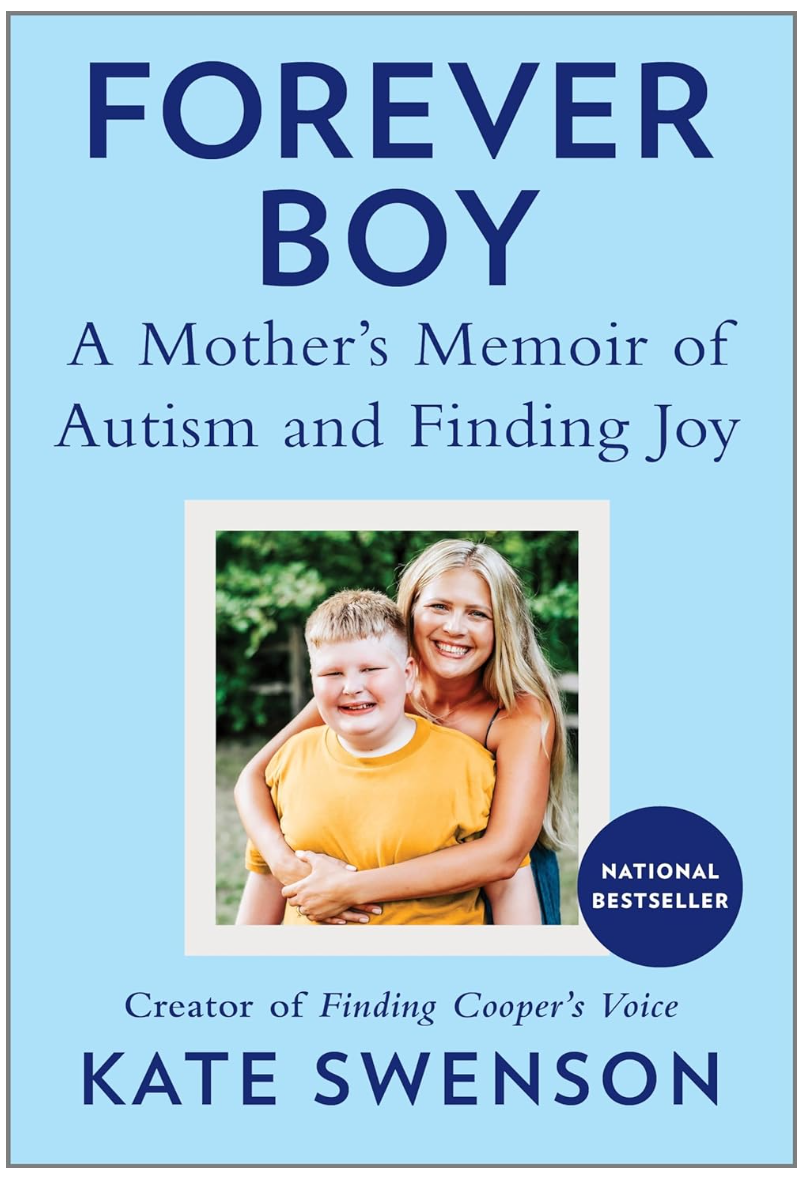
Kristin, Sarah, all you kids, moms and dads and brothers and sisters, and yes – all you grandparents,
Thank you for all your pain, your suffering, and working hard – HARD – to make it through, to love your relative, your friend, all with autism. My heart bleeds for you. Yes, I know that’s “trite” but it is true. Yet through your bleeding, through your sharing, my tears fall for you; I want to hug you and tell you “it will be OK,” even though I know it won’t, not on your own. I have no autistic relatives that I am aware of, but my family IS suffering its own “challenges”, challenges I never dreamed of. I love you. I respect you. I want to connect with you, yet I have nothing to say, except I feel for you. No, not at the level or the expense that you feel, but I still love you. I care for you. You are helping deepen my own compassion for others. I am thankful that “But, it does mean that, more often than not, we’re able to enjoy each other, and truly live, right where we are. Without expectation. Johnny taught us that.” These are lessons we all need to learn. Thank you, Johnny, and you other people I know who live with autism. Thank you.